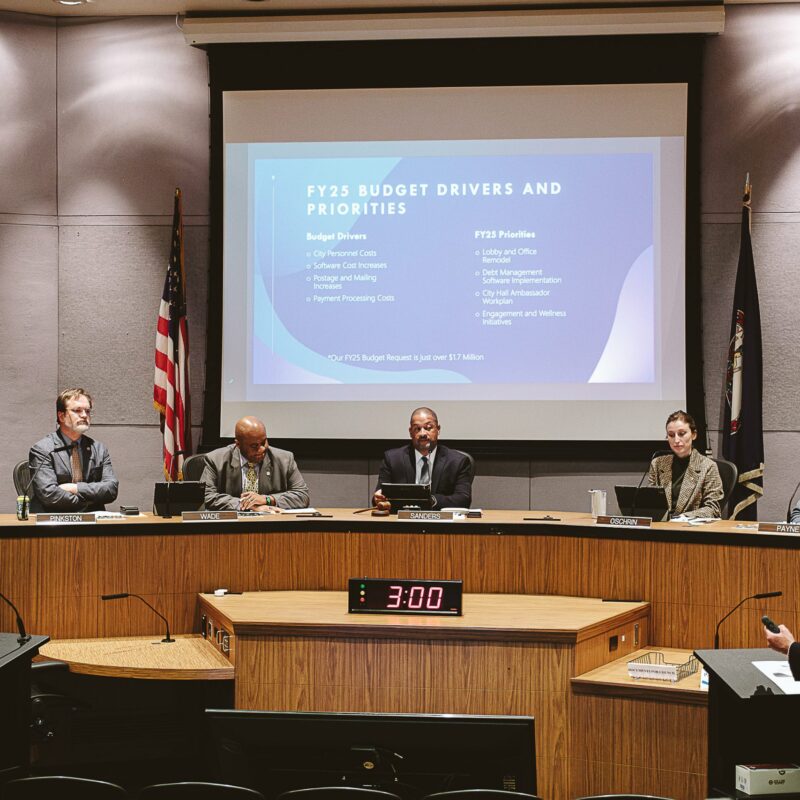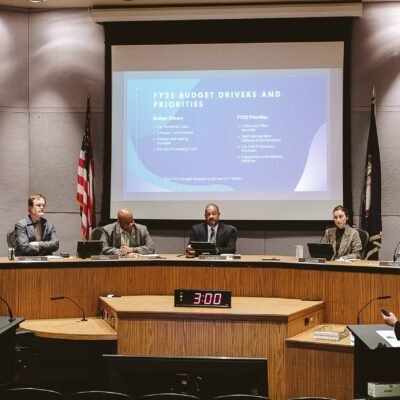Charlottesville is known for its fondness for studies, and a recent one on downtown parking concurs with a 2008 study that meters are a way to relieve a paucity of parking spaces. The question now is whether City Council will follow the recommendations that so far have cost taxpayers $98,500 for both studies, according to Chris Engle, director of economic development.
Charlottesville has not optimized the parking resources it has, which creates a “somewhat artificial sense of parking shortage,” says the Nelson/Nygaard study. “While some parking resources are oversubscribed, others demonstrate available capacity that could be better used.”
Downtown parking czar Mark Brown, who owns the Charlottesville Parking Center and who last year pushed paid street parking, isn’t surprised the study suggested adding meters. “It said exactly the same thing as the previous study in 2008,” he says.
What’s changed in the interim is that the Water Street Garage now has a waiting list for monthly parking, joining the Market Street Garage, which “has had a waiting list forever,” says Brown. Water Street has 900 spaces leased for monthly parkers, but there are never more than 600 parked there at one time, says Brown. “Where are they?” he asks. “They’re parked on the street and we have to hold a spot for them.”
To Brown, the lack of street parking is caused by downtown workers, many of whom grab the free two-hours parking meant for visitors, even if it means doing the two-hour shuffle.
Unless the city gets a grip on parking, says Brown, development will stall downtown. He’s tried to buy land for parking, but he says the owners want double or triple its value, claiming that it can be developed into offices, condominiums or hotels. “How are you going to develop with no parking?” he asks.
And while curbside parking is more valuable than off-street parking, the city’s pricing structure doesn’t reflect that, says the study. “[C]ompetition for curbside parking spaces is fierce in some locations even when off-street facilities in the immediate vicinity have a substantial unused supply,” says the study. “The city should restructure parking fees to better align parking price with parking demand and comparative value.”
The study also recommends creating a department of parking, discounting monthly garage parking rates for those who park on the top floors and putting smart meters at spaces most in demand.
Since parking meters were removed downtown in the ’70s, City Council has been reluctant to bring them back and did not heed the recommendation in 2008. At an October 1 City Council work session, “I saw a lot of nodding heads,” says Councilor Kristin Szakos. “I really think the time has come.”
City Councilor Bob Fenwick doesn’t agree. “The meters were taken off the streets long ago to encourage shopping downtown and it worked like a charm,” he says in an e-mail.
He’s also critical of the council’s tendency to pay for studies. “The staff is perfectly capable of reviewing the 2008 study (as are all the councilors and the city manager) and getting as much out of that as possible,” he says.
“I think the city in general does way too many studies,” says Brown. “If every time you do something you have to do a study, why do you have staff?”
But Szakos says the study “absolutely” was worth it because the earlier one was out of date. She also found some benefit from the perspective of those who did the study. “These are things cities across the country have dealt with,” she says. “There are best practices. There is a lot of science to it.”





